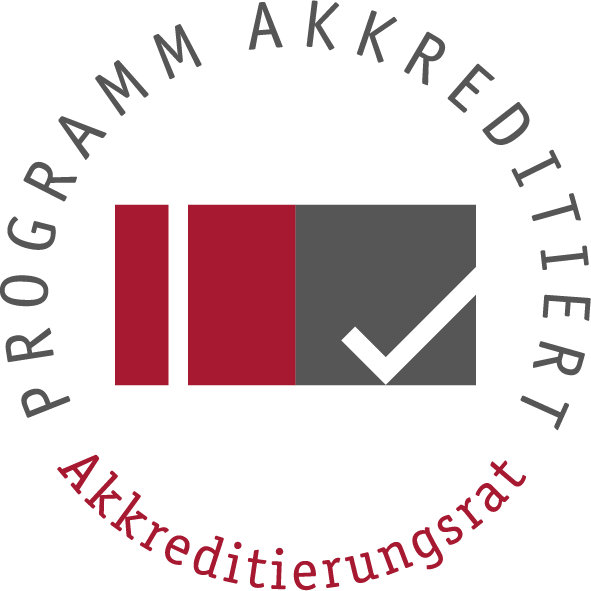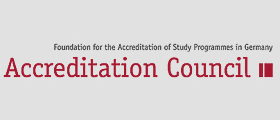Hinweis: Auf dieser Seite finden Sie Informationen zum alten Akkreditierungsrecht bis 31.12.2017.
Accreditation of study programmes
Object | Assessment | Obligation
Object of the Accreditation Process
The programme accreditation process is objected to Bachelor and Master’s study programmes offered by German state or state recognised higher education institutions. If a study programme successfully passes through an accreditation procedure, it will receive a time-restricted accreditation with or without conditions and carries the foundation’s quality seal for the duration of its accreditation. If study programmes are highly affine and connected in a valid manner, the accreditation can also be applied within one procedure (cluster accreditation). However, the accreditation decision will always refer to the individual study programme.
Assessment
The accreditation procedure is a multistage procedure which is based upon the principle of peer review. If an institution of higher education applies to an agency for accreditation for one of its study programmes, the agency will appoint a group of experts which will reflect both the academic focus and also the specific profile of the study programme. The expert group will comprise representatives of all the relevant stakeholders. This will particularly include representatives of the higher education institutions - namely lecturers and students - and representatives from professional practice.
The assessment of the study programme by the expert group takes place in accordance with the Rules for the accreditation of study programmes and for system accreditation. It generally includes an on-site visit to the higher education institution, as well as the analysis of the higher education institution’s application rationale. In this context, the group of experts will conduct on-site interviews with the management of the higher education institution, teaching staff and students. Finally, the experts will prepare a report with a recommendation on the accreditation of the study programme.
Based upon the report and according to the rules for decisions stipulated by the Accreditation Council, the agency’s relevant decision-making body will then decide upon the accreditation for the respective study programme, an accreditation with conditions, a suspension, or a refusal of accreditation.
Following the procedure, the agency will publish its decision, the expert’s report and the names of the experts in the Accreditation Council database. If there is a negative decision, the Accreditation Council will receive the appropriate notification instead of the publication.
Obligation
Accreditation is mandatory, according to the Common Structural Guidelines of the Länder (states) and is required in various ways as a condition for state approval, according to the respective state laws.
File Synopsis: Relation between accreditation and state approval of study programmes according to federal state law, state 17.06.2011 (in German only)
Accreditations always have a time limitation; a programme accreditation is usually valid for a period of between five and seven years.
Detailed information on procedure and requirements in programme accreditation are available in the rules for the accreditation of study programmes and for system accreditation.
